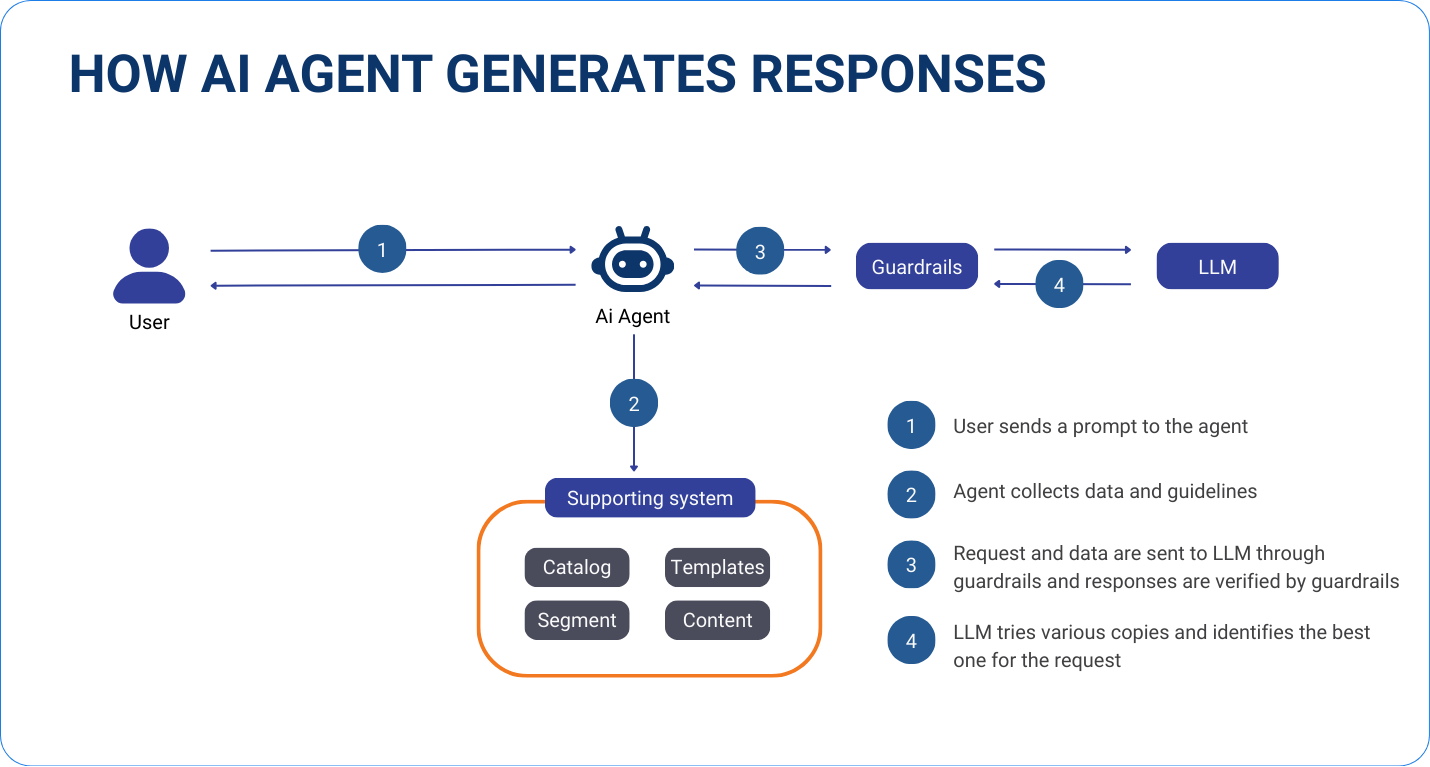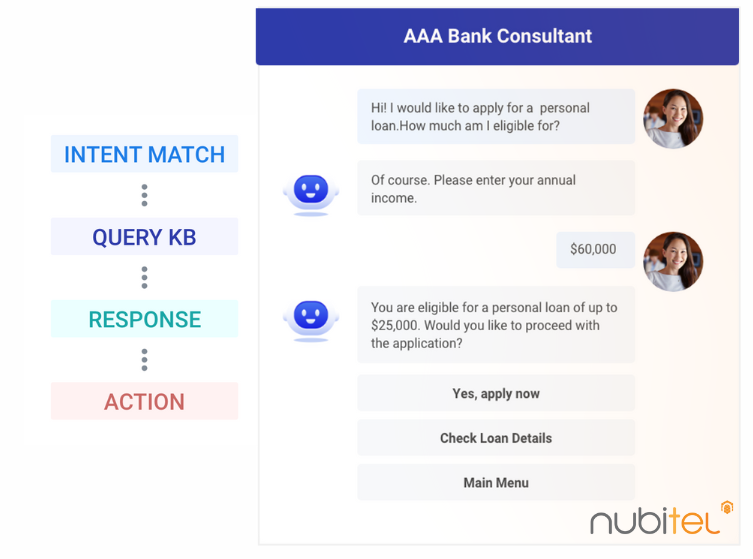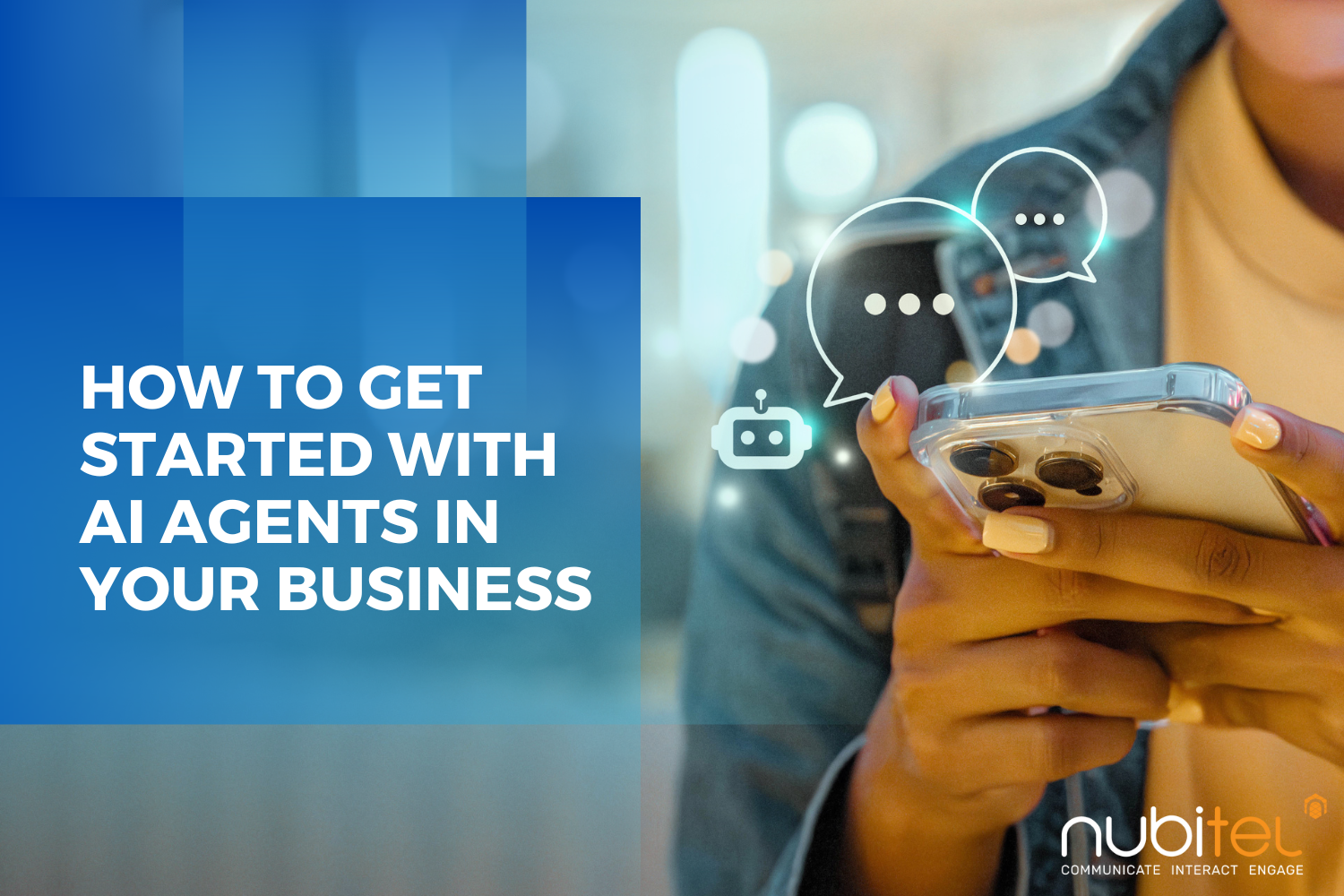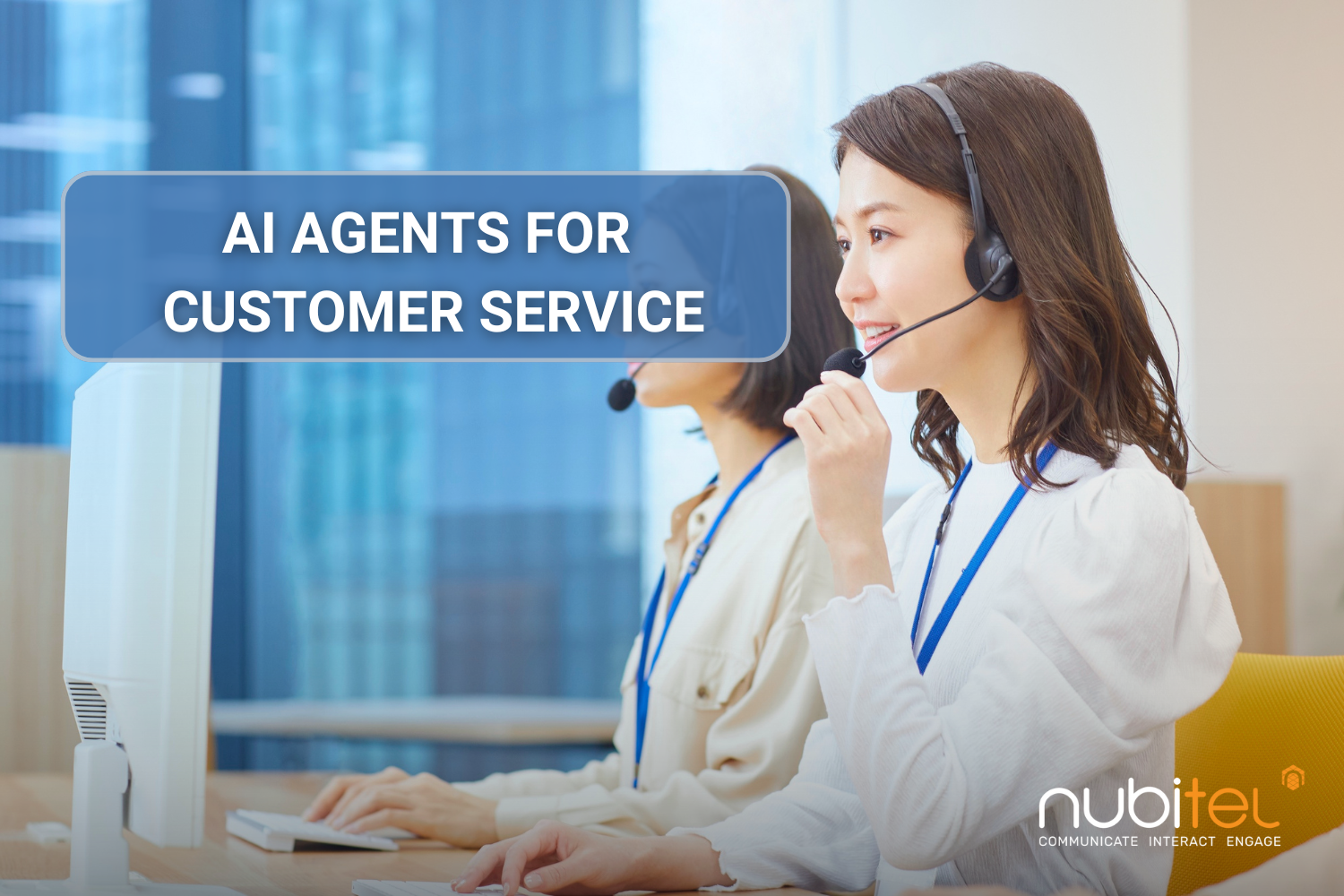Generative AI has captured significant attention in recent years, but another transformative development is gaining traction in modern enterprises: AI Agents—intelligent systems that combine multiple AI technologies to autonomously perform complex tasks and make decisions. According to Gartner, by 2028, 33% of enterprise software applications will integrate AI Agents, which are expected to autonomously handle 15% of daily work decisions, signaling a major shift in how businesses operate.
In 2025 and beyond, AI Agents are being piloted strategically to innovate business models, particularly in customer service, where they address pain points along the customer journey and capitalize on emerging opportunities. As companies like Google, Microsoft, and OpenAI continue to invest in agentic AI technologies, it’s clear that AI agents have already begun reshaping industries.
This article discusses the concept of AI Agents, benefits for enterprises, challenges, and best practices for integrating them into business workflows in 2025 and beyond.
Table of Contents
ToggleWhat Are AI Agents?
AI Agents are autonomous software entities powered by advanced artificial intelligence techniques such as machine learning (ML), deep learning, and generative AI. Unlike traditional automation tools or single function chatbots, AI agents are designed to interpret natural language, reason through multi-step problems, and take actions aligned with specific goals. They represent a significant leap forward from standalone large language models (LLMs) or rule-based systems.
AI Agents combine perception, reasoning, decision-making, memory, and planning into one cohesive framework. They can learn from interactions, adapt over time, and operate across various domains and platforms.
The diagram below shows how AI Agents process prompts, apply guardrails, and use LLMs to generate the best response.

Core Capabilities of AI Agents
To understand the full potential of AI Agents, let’s explore the four primary capabilities that make them essential for modern enterprises:
Reasoning and Planning
AI Agents can break down complex tasks into subtasks, reason through dependencies, and devise action plans to accomplish predefined objectives.
Autonomous Action
Equipped with tools and system access, agents can execute tasks such as updating CRMs, analyzing data, running code, and even sending emails.
Knowledge Access and Adaptation
AI Agents integrate with APIs, databases, and knowledge bases, enabling real-time data access and continuous learning.
Collaboration and Orchestration
AI Agents can collaborate with other agents or humans in a loop, handing off when complexity or ambiguity requires human input.
Why AI Agents Are Essential for the Future of Customer Service
Enterprises are increasingly turning to AI Agents to improve operational efficiency and scale automation across departments. According to McKinsey, more than 72% of companies surveyed are already deploying AI solutions, with a growing interest in generative AI. This means that in 2025 and beyond, AI Agents will play an essential role in modern business.
Below are the core benefits, now expanded with use cases in inbound and outbound operations:
1. Automate Routine Inbound & Outbound Tasks
AI Agents streamline high-volume tasks that were once handled manually by human agents—such as intent detection, knowledge retrieval, and transactional workflows. In inbound scenarios, AI can understand user intent, pull relevant data from a knowledge base, and craft contextual responses that guide users toward resolution. In outbound operations, these agents can trigger actions like scheduling follow-ups or sending targeted messages based on user data and behavior.
Example: A customer asks about personal loan eligibility. The AI agent identifies the intent, requests the user’s income, checks internal systems, and responds with a personalized loan offer. The user is then given options to proceed—all within the same chat flow, without human involvement.

2. Personalize Interactions at Scale
AI Agents use natural language processing (NLP), customer history, and real-time data to tailor responses and actions. In inbound contact centerservice, this leads to personalized greetings, contextual upselling, or recommending support articles based on past behavior. For outbound marketing, agents can send targeted messages based on user preferences, purchase history, or engagement score.
Example: A telecom company uses outbound AI Agents to detect customers nearing contract expiry and automatically offers personalized renewal deals.
3. Scale Support Without Extra Headcount
AI Agents can operate 24/7, support multiple languages, and handle surges in customer volume without hiring additional staff. In both inbound and outbound operations, they provide the elasticity enterprises need to meet demand spikes—like seasonal promotions or product launches—without compromising performance or CX (Customer Experience).
Example: During high-traffic events (e.g., Singles’ Day or Black Friday), inbound AI Agents can resolve thousands of queries per hour, while outbound agents send personalized promotional offers at scale.
Challenges and Risks with AI Agents
Despite their numerous advantages, AI Agents present several challenges and risks that businesses must consider:
Bias in Decision-Making
AI Agents rely on data to make decisions, and if this data is biased, it can lead to unfair outcomes. To mitigate this risk, organizations should ensure their training data reflects diverse perspectives and regularly audit AI decisions to improve fairness and accuracy.
Regulatory and Compliance Issues
In regulated industries, AI Agents must adhere to strict legal and compliance standards. Mishandling sensitive data or breaching regulations could lead to reputational damage and costly penalties. Businesses must implement clear guidelines to ensure that AI systems comply with industry laws.
Productivity Leakage
AI Agents can help reduce workloads by automating routine tasks, but this can sometimes result in productivity loss if the freed-up capacity is not redirected effectively. Organizations must establish clear goals and objectives for how human employees should focus their time once routine tasks are automated.
How to Get Started with AI Agents in Your Business
Integrating AI Agents into your business requires careful planning and a structured approach. Here are some best practices for successful implementation:

1. Document Business Processes
Before implementing AI Agents, businesses should document existing workflows, customer service scripts, and escalation protocols. Clear documentation ensures consistency and helps AI Agents perform tasks more effectively.
2. Prepare IT and Data Infrastructure
AI Agents require strong IT infrastructure to function optimally. Ensure that data is accessible, APIs are streamlined, and systems are flexible enough to support the integration of AI technologies.
3. Establish Human-in-the-Loop (HITL) Mechanisms
Although AI Agents are autonomous, human oversight is crucial for ensuring that decisions are accurate, fair, and compliant with regulatory requirements. Implementing HITL mechanisms helps maintain control over critical decisions.
4. Redefine Success Metrics
Traditional customer service metrics like average handling time or resolution rate may no longer apply when AI Agents handle routine tasks. Organizations should redefine success by measuring the quality of service and problem-solving skills that human agents provide, especially for complex issues.
5. Adopt Change Management Practices
Introducing AI Agents may cause anxiety among employees who fear job displacement. It’s important to position AI as a tool that enhances human capabilities rather than replaces them. Clear communication and training can help employees adapt to the new technology.
Ready to Leverage AI Agents for Your Enterprise in 2025 and Beyond?
Implementing AI Agents can unlock significant potential for enterprises to streamline operations, drive innovation, and compete effectively in a fast-changing digital world. By codifying internal processes, strengthening your IT foundation, and aligning your team through change management, you’ll be equipped to thrive with AI Agents in 2025 and beyond.
Let Nubitel be your trusted cloud contact center solutions provider in delivering an AI-powered omnichannel experience that exceeds expectations. Schedule a demo today!





